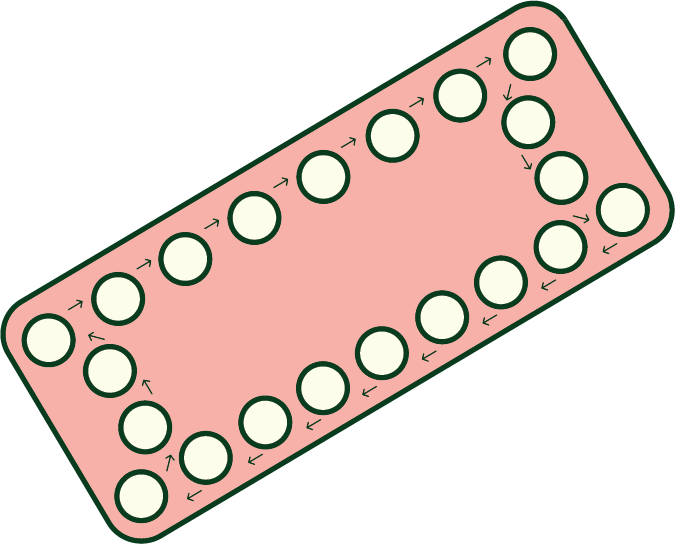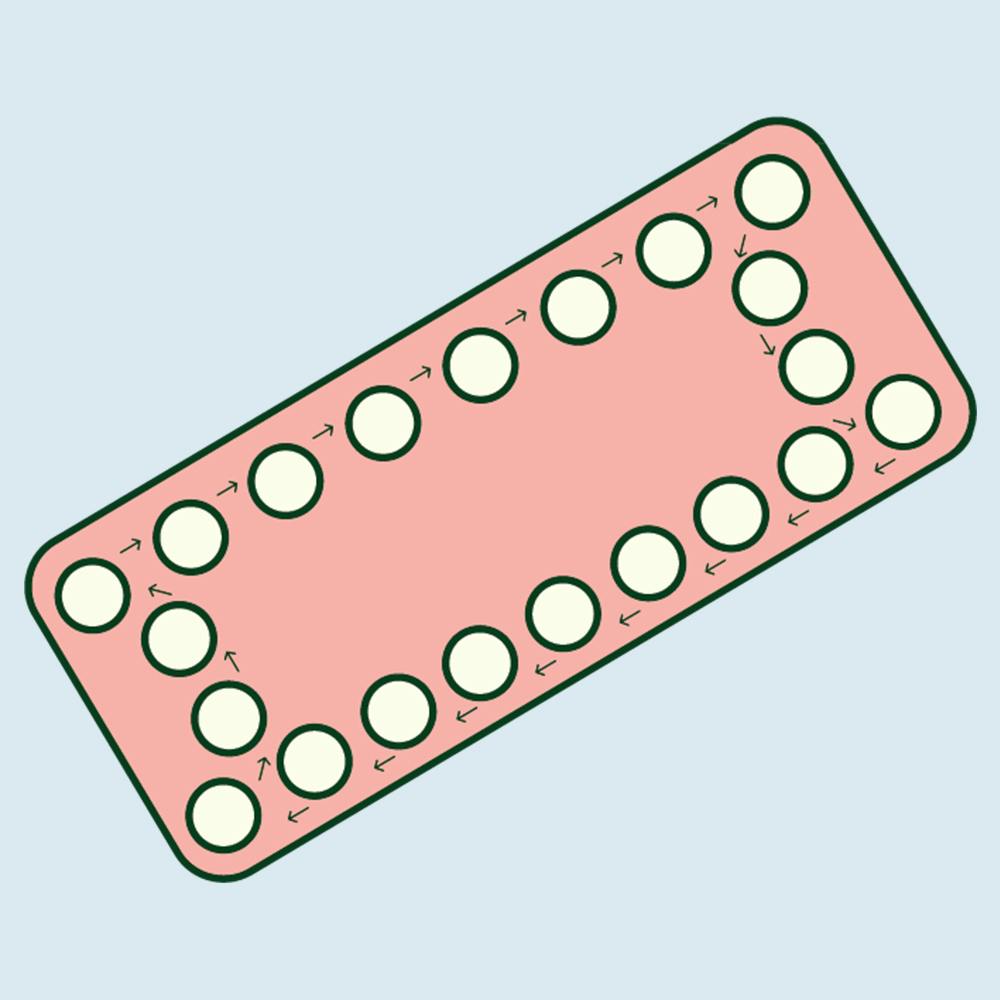Illustrated by Erin Rommel
Vaginal infections are the worst. Whether it’s thrush, bacterial vaginosis (BV), or some other bacterial or fungal situation that’s making your vagina unhappy, we all have to with this unpleasant fact of life at some point or another.
But, is it possible that women who are on hormonal contraception might be more susceptible to thrush and BV than others? And might these changes be driven by changes in the vaginal microbiome?

Probiotics strenghten your vaginal microbiome so it can fight off harmful bacteria. Daye's ProViotics can help you protect your vagina from infections such as thrush and BV by replenishing your vaginal flora with good bacteria.

What causes thrush and BV?
To start with, a few background details. Thrush is generally caused by overgrowth of the fungus Candida albicans, whereas BV is typically caused by overgrowth of bacteria called Gardnerella vaginalis, commonly found in the vagina.

Both thrush and BV can get prompted by imbalances in healthy bacteria (lactobacilli) in the vaginal canal. However, they seem to be influenced in different ways by hormonal contraceptives.
First, BV. Multiple studies find that women using combined oral contraceptive pills are less likely to be colonised by BV-associated bacteria than women using condoms (although others have found a slight increased risk).
These differences are believed to be the result of pill-takers having increased colonisation by healthy strains of lactobacilli, which are protective from BV.
One of the largest studies evaluating the impact of contraceptive methods on BV followed 3,077 women of reproductive age from gynecologic and family planning clinics for one year. At the end of the year, they found that those women who were on oral contraceptives or the hormonal injection or implant were significantly less likely to have BV than those who didn’t use hormonal contraception.

With thrush, or Candida, it seems like the picture is somewhat less rosy. This is because the oestrogen found in some forms of hormonal contraception (like the pill) can feed the yeast already present in your vagina and trigger it to overgrow, causing yeast infections.
Although newer, low oestrogen formulations of the pill have lowered the risk of yeast infections relative to what it used to be, the general consensus is that the pill can increase some women’s risk of thrush.
Regardless of whether you are on hormonal contraception, the best way to keep a healthy, happy vagina is to look after your vaginal microbiome.
You can do this by avoiding unnecessary antibiotics, practicing safe sex, and avoiding douching. The vaginal microbiome is your friend. Doing your best to keep it healthy will go a long way in fending off unpleasant vaginal infections, regardless of the contraception you choose.






